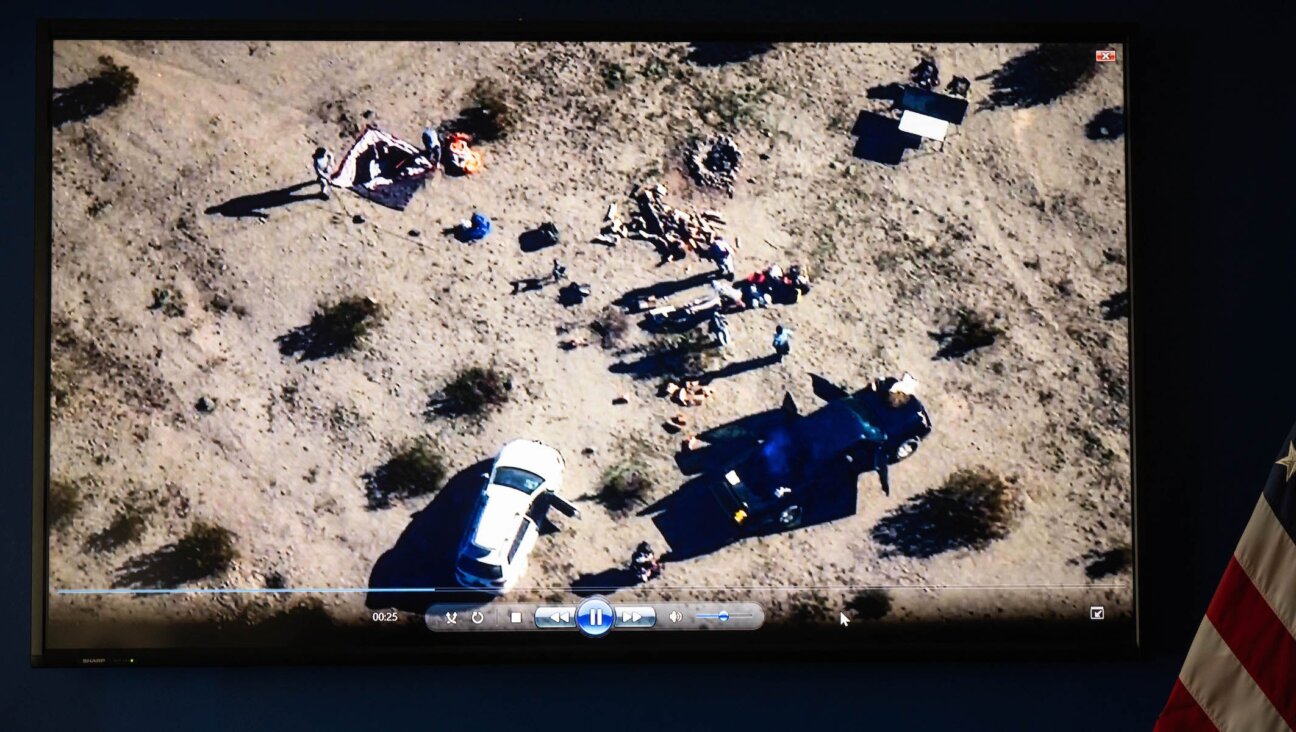Bibi to Visit Key Power Bases on High-Profile D.C. Visit
As he arrives in Washington on May 19 for a crucial visit, Israeli Prime Minister Benjamin Netanyahu is seeking to maximize his impact with a tour that will hit four American bases of power: the administration, Congress, the media and the Jewish community.
Netanyahu’s visit, which will begin on May 20, will take place as the epicenter of Middle East activity moves to America’s capital in the days ahead.
Obama delivered a major policy address on the Middle East at the State Department Thursday. And the president will also speak May 22 at the annual policy conference of the American Israel Public Affairs Committee.
On the Arab side, Jordan’s King Abdullah II has been visiting Washington since May 16 to provide his input as the administration shapes its Middle East policy. He was scheduled to depart the day before Netanyahu’s arrival. Meanwhile, Palestinian President Mahmoud Abbas weighed in with a May 17 New York Times op-ed in which he laid out his rationale for seeking a declaration of Palestinian statehood through the United Nations General Assembly in September, which the United States and Israel oppose.
The Israeli prime minister’s American tour will begin with a May 20 Oval Office meeting with Obama. It will be an opportunity for Netanyahu to give the president a preview of his upcoming speech in Congress and to discuss the status of the peace process in light of recent events in the Middle East. Netanyahu’s message, based on Israeli press reports and on his May 16 speech in Israel’s Knesset, will be that he is willing to compromise on territory in the West Bank in return for satisfactory security arrangements, but — and here comes a big caveat — this cannot happen with a Palestinian government that includes members of Hamas.
Netanyahu is also expected to point to the events of May 15 along Israel’s borders, in which thousands of Palestinian refugees tried to cross in from Syria and Lebanon while others protested on the streets of Gaza and the West Bank, in order to make the case that Israel’s sovereignty is under attack.
This White House meeting is widely expected to be tense at times, as the two leaders touch on differences in their vision for promoting Middle East peace. Netanyahu prefers to put off tough decisions until the Palestinians recognize Israel and sit down for direct negotiations.
Obama believes that an Israeli expression of good will and a statement regarding the nature of a final-status agreement are now needed to break the deadlock.
In his May 17 meeting with Abdullah, Obama did not give any sign of wishing to break publicly with Israel. He instead stuck to the formula of stressing direct talks as the key to progress in the region.
“Despite the many changes, or perhaps because of the many changes that are taking place in the region, it’s more vital than ever that both Israelis and Palestinians find a way to get back to the table,” Obama said after his meeting with the Jordanian monarch. He refrained from any hint of a possible new American drive for Middle East peace.
In his daily news briefing after the meeting, White House spokesman Jay Carney knocked down as “completely false” Israeli news media reports that Obama plans to demand that Israel accept the 1967 border as the basis of negotiations with the Palestinians. But two days later, Obama appeared to do just that in his major policy speech, when he declared, “The borders of Israel and Palestine should be based on the 1967 lines with mutually agreed swaps, so that secure and recognized borders are established for both states.”
It was a formulation that Netanyahu quickly rejected publicly. It remains to be seen how the two leaders will deal with their split on this when they meet.
Netanyahu looks forward to a few easier days after his Friday meeting with Obama. On May 23, he will address the AIPAC conference, whose participants believe in firm backing for Israel’s elected government. Many of them have great sympathy for Netanyahu. Obama will arrive at the AIPAC conference a day earlier to deliver an address that Carney said will not be “a major policy speech.”
And on the morning of May 24, Netanyahu will give his much awaited speech to a joint meeting of the U.S. Congress. Even before the Israeli leader steps foot on Capitol Hill, a warm welcome is promised. “Congress reflects the grassroots American support for Israel, which is seen as a fellow democracy consistent with the so-called Judeo-Christian tradition and also a fellow fighter in the war against Islamist extremists and terror,” said Senator Joseph Lieberman, the Connecticut Jewish independent who spoke to the Forward on the sidelines of a White House reception marking Jewish American Heritage Month.
Finally, Netanyahu will dedicate time, after giving his congressional speech, to addressing the American media. The Israeli prime minister, known for his fluent English, considers TV interviews to be one of his fortes. According to officials involved in planning his visit, Netanyahu has blocked out several hours following his speech to Congress on May 24 for TV interviews with major networks and cable news shows.
Contact Nathan Guttman at [email protected]













